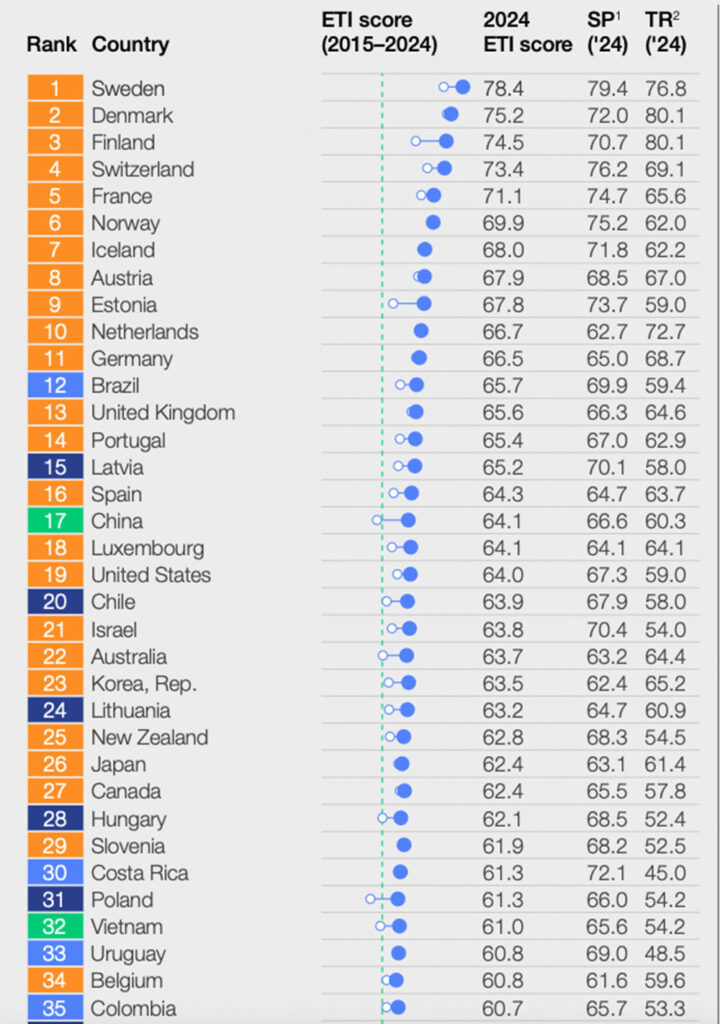- Sweden, Denmark, Finland, and Switzerland lead the Energy Transition Index (ETI), with France also ranking high due to robust energy policies.
- China and Brazil have shown significant progress; Estonia, Ethiopia, and Lebanon have rapidly improved by focusing on off-grid renewable energy.
- Slowing momentum due to lagging clean energy investment, economic volatility, and geopolitical tensions, with a need for increased investment in energy efficiency and low-carbon sources.
World Economic Forum’s (WEF) “Fostering Effective Energy Transition 2024” report highlights global progress and challenges in energy transition.
Top Performers
Sweden, Denmark, Finland, and Switzerland lead the Energy Transition Index (ETI). France ranks in the top five due to its intense energy policies. With 2% of the global population and 1% of CO2 emissions, these countries show robust energy security. They rely on diverse energy sources, clean energy, carbon pricing, and solid legal frameworks.
Emerging Economies Advancing
China and Brazil show notable progress. In 2023, China expanded its solar photovoltaic (PV) capacity. Brazil focuses on hydropower and biofuels. Estonia, Ethiopia, and Lebanon have improved fastest over five years by enhancing off-grid renewable energy.

Leading Developing Nations
Lebanon, Ethiopia, Tanzania, Zimbabwe, and South Africa advance energy transition by reducing fossil fuel subsidies, promoting decentralised renewable energy, and creating clean energy jobs. Vietnam ranks 32nd in the index, showing steady progress.
Challenges to Net-Zero
Momentum in energy transition slows. Despite increased wind and solar adoption, clean energy investment lags. This affects efforts to meet net-zero emissions by 2050. Key areas needing more investment include energy efficiency, grid electrification, and low-carbon energy sources.
Economic and Geopolitical Obstacles
Inflation and high interest rates tighten energy markets, complicating sustainable energy investment for developing nations. Geopolitical tensions also slow progress. Germany increased coal production by 35% 2022 due to reduced Russian gas.
Investment Gaps and AI Support
Investment disparities persist, with advanced economies accounting for 85% of clean energy infrastructure investment. AI helps governments and energy firms, with Accenture estimating annual savings of $500 billion from AI initiatives.
Note that the WEF report calls for faster investment and innovation to maintain momentum in the global energy transition.